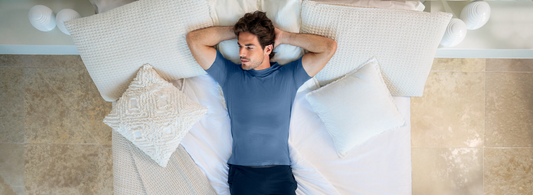ARE YOUR COLLEAGUES KEEPING YOU AWAKE AT NIGHT?
We all know the impact our workmates have on our daily life but did you know that they also impact our sleep quality? Psychosocial factors, including a negative social environment at work and high work demands have been shown in research to have a far greater impact on sleep quality than other physical work factors such as shift work or working overtime.
People who don’t feel supported by their co-workers are twice as likely to suffer from sleeping disorders (35% versus 18%). The more stress we feel at work, the less we sleep.
Unfortunately, this becomes a double whammy: stress reduces the quality of our sleep and as we get less sleep, our mood is even worse and our stress levels even higher.
37% of people with severe sleeping problems show a risk of burnout as well; the better you sleep the lower the risk of walking head on into that wall.
In other words, there is no time to waste in improving a stressful work environment. It is also important that we try and detach ourselves from work in our downtime; research shows that not being able to stop thinking about work during our free time is the most common predictor for poor sleep. By making sure that we have a good work environment we can make sure we get a good sleep and enjoy a better life.
Sources: Bundesamt für Statistik, Schweizerische Gesundheitsbefragung 2012. Work and Sleep: Research Insights for the Workplace edited by Julian Barling, David T. Wagner. Sleep Journal volume 38, Work and sleep—Psychosocial, physical and scheduling factors. Åkerstedt et al.



